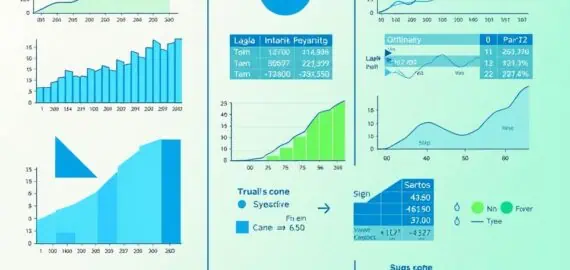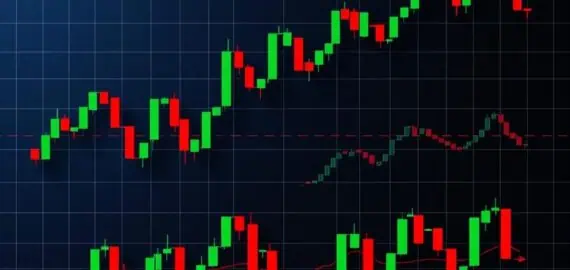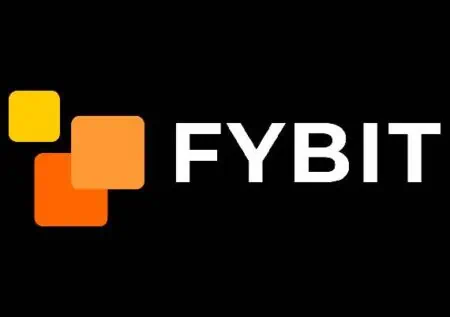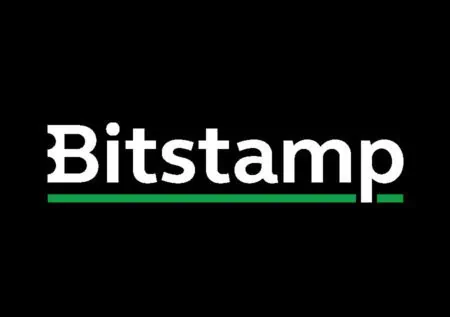Your Ultimate Guide to Trading Online
Welcome to CrowdWiz.io
The most comprehensive investment and crypto guide made for both noobes and pros created by finance experts.
Buying and selling assets online for quick profits—that’s e-trading in one simple definition.
If we consider that the e-trading industry will potentially hit $13.3 billion by 2026, it’s not surprising that more and more people want to be a part of it. But, starting e-trading without understanding it can be risky. Really risky. That’s why in this guide, we’ll share all the information you need to know to start trading successfully.

Our Popular Trading Guides
Unlock the power of your trading skills with our short guides
Getting started is easy
CrowdWiz Investments – The Future in Your Hands
Check out this small guide about investing online and crypto investing options you might like.
Top 4 Exchangers in 2025
Understanding the Markets
Cryptocurrency Market
What are cryptocurrencies?
Cryptocurrency are digital currencies secured by cryptographic systems that allow safe online transactions without intermediaries.
Blockchain is the most used and popular one. As the name suggests, it’s a sequence of information blocks of an online ledger. Every block includes transactions that are independently verified.

Different types of cryptocurrencies and their uses
Security Tokens
These tokens refer to asset ownership. Tokens are unique identification codes made from metadata through an encryption function.
Example: MS Token is an example of a securitized token.
Utility
Utility tokens offer various functions on their blockchains.
Example: ETH and XRP.
Transactional
Tokens that you can use as a payment method fall in this category.
Example: Bitcoin is the most popular transactional token.
Risks coming with cryptocurrency trading
Volatility
Cryptocurrency values go up and down a lot, which can be tough for traders who aren’t used to such unpredictable markets.
Scams
Criminals and scammers “love” cryptocurrency because transactions are hard to trace and reverse. Plus, money can be sent overseas.
Liquidity
This refers to how quickly and easily traders can exchange an asset for cash. Smaller cryptocurrencies, especially new ones, are harder to turn into cash fast.
Forex Market (Foreign Exchange)
The global foreign exchange (forex) market is the largest and most actively traded financial market in the world. Both beginners and experienced traders that are looking for a solid forex broker are advised to investigate the trading experience, the product offerings (currencies, contract for differences (CFDs), indexes, commodities, spread betting, cryptocurrencies, etc.), fees (including spreads and commissions), trading platform(s) (web-based, downloadable software, mobile, charting, and third-party platforms), customer support, trading education and research, and trustworthiness.
We research and review thousands of forex brokers & forex prop firms to help you decide which platform fits your needs and experience level.
How to Start Forex Trading in 5 Easy Steps
- Educate Yourself: Begin by learning the basics of Forex trading. Understand how the market works, different trading strategies, and risk management techniques.
- Choose a Reliable Broker: Select a reputable Forex broker that suits your trading needs. Ensure they are regulated, offer competitive spreads, and have a user-friendly trading platform.
- Practice with a Demo Account: Before risking real money, practice trading with a demo account. This allows you to familiarize yourself with the platform and test your strategies without financial risk.
- Develop a Trading Plan: Create a trading plan outlining your goals, risk tolerance, and strategy. Stick to your plan and avoid impulsive decisions while trading.
- Start Trading: Once you feel confident and ready, start trading with a small amount of capital. Monitor your trades, analyze performance, and continuously learn and adapt your strategies.
Major currency pairs and their dynamics
Currency pairs judge the value of one currency against the other. Traders can pick from lots of currency pairs.
Major ones, with USD, are traded the most because the US economy is strong.
Here are the 7 major currency pairs:
- The US dollar and New Zealand dollar: USD/NZD
- The US dollar and euro: USD/EUR
- The Canadian dollar and US dollar: CAD/USD
- The Swiss Franc and US dollar: CHF/USD
- The Japanese yen and US dollar: JPY/USD
- The US dollar and Australian dollar: USD/AUD
- The US dollar and British pound sterling: USD/GBP
Factors influencing forex trading
Interest Rates
This factor is deeply connected to exchange rates and inflation. By manipulating this factor, central banks impact exchange rates and inflation. Interest rate fluctuations exert an influence on currency values and inflation.
Economic Data
Low unemployment, strong GDP growth, and low inflation can boost a currency.
Trade Data
International trade figures, such as surpluses and deficits, affect forex markets. The trade balance serves as a proxy for the demand for goods from a country.
Forex trading strategies
Carry Trade
Carry trade is a famous yet risky strategy. Traders earn profit by taking advantage of interest rate differentials between different countries.
Carry trade is effective because purchased currencies that are held overnight pay interbank interest rates to traders.
Breakout Trading
This straightforward trading approach involves reacting to external price movements. Breakouts happen when prices go beyond resistance levels or drop below support levels.
Moving Average Crossover
This is a simple technical analysis tool that calculates a recent average price using price data; this average can be calculated over different time periods.
Stock Market – Different types of stocks
How to analyze stocks?
- Common Stock: Basic type of stock, provides voting rights and usually dividends.
- Mid-cap Stock: Shares of medium-sized companies with market capitalizations of $2 billion to $10 billion (e.g., DocuSign, Under Armour, Chewy, Foot Locker).
- Preferred Stock: No voting rights, guarantees dividends, priority over common stockholders in asset liquidation.
- Large-cap Stock: Shares of large companies, indicated by high market capitalizations.
Fundamental Analysis
This analysis sees a company from a fundamental financial standpoint and is based on the principle that a company’s stock price doesn’t always equate to its value. Through fundamental analysis, investors can understand a company’s finances and whether its stock might be over- or undervalued.
Investors use different tools to carry out this analysis, such as earnings per share (EPS) and revenue.
Technical Analysis
This is a procedure for analyzing stocks that directly views a stock’s supply and demand to make investing decisions. Technical analysis is based on the principle that all important information is available inside trend/history analysis and stock charts.
Trend indicators and leading indicators are important critical parts of technical analysis.
Stock market terminology
Dividend
When a company makes money, it might share some of it with shareholders regularly, either yearly or quarterly. But not all companies do this.
Quote
This refers to the stock’s newest trading prices having information.
Arbitrage
Where you buy something (like foreign currency) in one location and sell it in another where the price is higher than what you paid.
P/E Ratio
The P/E Ratio tells you if a company’s stock is cheap or expensive. You calculate it by dividing the current stock price by the earnings per share—EPS. It helps investors see if a stock is overvalued or undervalued.
NFT Market (Non-Fungible Tokens)
NFT stands for Non-Fungible Token — and investing in NFTs is an innovative form of digital asset investing. It’s based on the idea that digital assets are unique items that can be bought, sold, and traded like stocks. In other words, they are pieces of digital art or collectibles that have been stored on a blockchain. These assets can include anything from artwork and music to sports memorabilia and gaming experiences.
But why invest in these assets? Well, they’re seen as having higher intrinsic value than traditional investments because they are unique and hard to replicate. This makes them attractive to investors who want something different and potentially more profitable than traditional investments. Plus, unlike other forms of investment, there’s no need to wait long periods of time before seeing returns—you could see returns almost immediately!
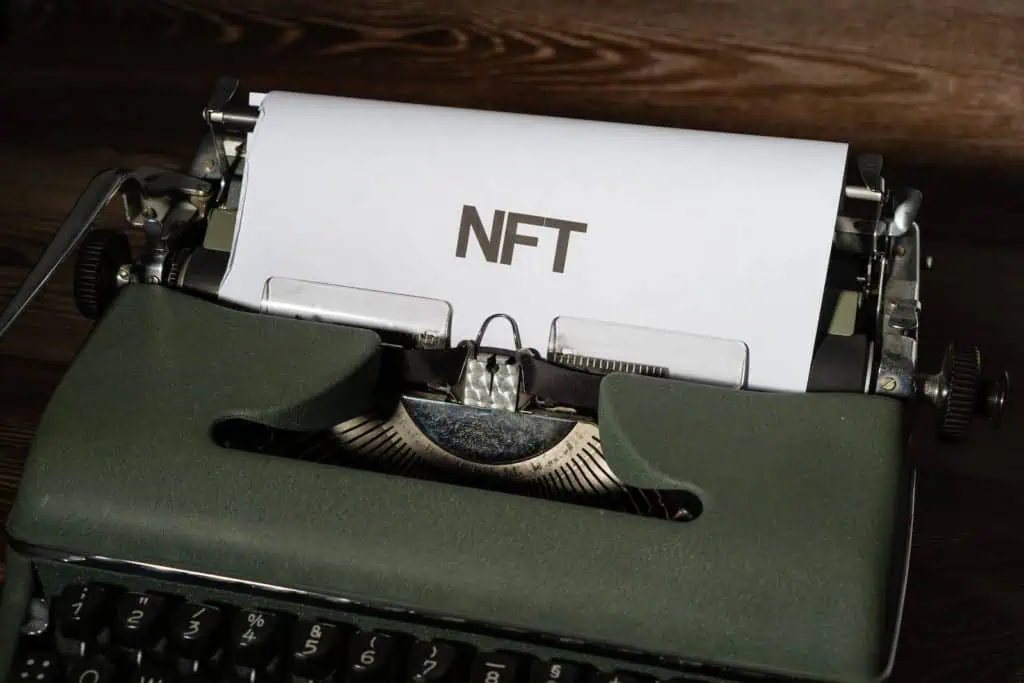
How To Get Started With NFT Investing
The first step is research. You should familiarize yourself with the different types of NFTs available, as well as their associated risks and rewards. You should also understand the technical aspects behind blockchain technology—the backbone on which this type of investment works—so that you can make informed decisions when it comes time to buy or sell your asset.
Next up is finding a platform where you can buy or sell your chosen asset. There are a number of platforms out there offering different services depending on what kind of investor you are (retail or institutional). Do your due diligence when selecting one—make sure it’s secure and reliable so that your investment is safe at all times!
Once you’ve found a platform you like, sign up for an account so that you can start trading your chosen asset! Conclusion: So there you have it—a beginner’s guide to getting started with NFT investing! As with any type of investment, there’s always risk involved; however if done correctly, the rewards could be extraordinary!
Be sure to do plenty of research beforehand so that you’re comfortable with every aspect of this exciting new venture before taking the plunge. Good luck out there – may your profits be plentiful!
NFTs and their unique properties
NFTs are assets tokenized on a blockchain, but the actual assets they represent are stored elsewhere. The connection between the asset and the token gives each NFT its uniqueness.
The NFT’s properties are programmability, indivisibility, portability, and authenticity.
Different types of NFTs
Art NFTs
These are the most distinguished forms of NFTs. Art NFTs include avatars, art created by algorithms, profile pictures, and more.
Video Game NFTs
This category might be the most popular utility NFT. Video game NFTs are generally used to add downloadable content to current games. Video game NFTs exist as characters, virtual accessories, and skins.
Collectible NFTs
Collectibles have comparable degrees of rarity. The majority of collectible NFTs are rare virtual tokens with a price tag of thousands of dollars.
Considerations for investing in NFTs
There are many reasons why people invest in NFTs. Here are some pros of NFTs:
- The market is accessible to the general public.
- You can own parts of an asset that might not be fractionalized.
- It’s an easy virtual means of verifying and establishing.
- Lowers conflict in ownership claims.
However, NFTs are vulnerable to market manipulation. There are also risks of money laundering and scams.
How to Choose an Online Broker?
Factors to consider when selecting an online broker are:
Fees
An online broker earns income primarily through transaction fees. Brokers typically offer a fee structure based on the trading of various assets. Traders must decide which types of assets they want to trade.
Account types
Be attentive to the types of accounts presented by each broker. The latest brokers don’t offer retirement accounts. You can launch an individual account, but you will need to pay taxes for that.
Deposit options
Check what deposit options are given by an online broker, such as electronic wallets, bank transfers, and credit/debit cards.
Regulation and security of online brokers
Most online brokers are registered with FINRA, the organization for broker-dealers. This makes sure that brokers follow high standards in their business. Moreover, their suitability rule and know your customer rule determines security.
Popular online brokerage platforms
Here are some of the best and most popular online brokerage platforms:
- Merrill Edge.
- Charles Schwab.
- Ally Invest.
- Fidelity.
- Robinhood.
How to Choose an Online Crypto Exchanger?
Cryptocurrency exchanges function similarly to other central exchanges. While selecting an online crypto exchanger, consider available cryptocurrencies, fees, and security.
Tip: Check how your cryptocurrency will be stored and whether you can take custody of it by transferring it to your virtual wallet.
Essential Trading Tools and Resources
Trading Platforms
E-trading platforms are buzzing with users that influence the financial markets.
Charts
Live charts are a great tool for traders to make investment decisions. It’s also needed for technical analysis.
Basic research tools
This allows traders to quickly see a company’s information, like historical earnings and financial metrics.
Investment options
A good platform will have a nice variety of assets to invest in, like stocks, mutual funds, and bonds.
Paper trading for practicing before investing real money
The paper trading practice involves people mimicking trading in markets without risking actual money. This is a basic practice for amateurs who want to get expertise and improve confidence before entering real financial markets.
Financial News and Analysis
Seasoned or beginner investors must stay informed about market trends, risk management, opportunities, and investment strategies. It’s important to analyze key indicators and track market movements.
Here are some trustworthy sources of financial news:
- CNBC.
- Bloomberg.
- Reuters.
- The Street.
Risk Management Strategies
Diversification
Don’t put all your eggs in one basket. Instead, invest in different assets and markets.
Hedging
This trick involves using financial instruments to hedge against market volatility.
Stop-loss Order
Use this strategy to cut your losses—set an order with a broker to buy or sell a stock at a certain price.
Define your investment goals for the short and long term as an investor.
Tip: Know your risk tolerance to plan your investing path.
Getting Started with Online Trading
Opening an online brokerage account
Set up your account in a few minutes at any online trading platform. You can invest your money and place trades once an account is created.
Tip: Before opening an account, take time to study which account type and brokerage will be suitable for you.
Funding your account and choosing your investment vehicles
Once your account is approved, you can transfer money from your bank to your brokerage account using the bank’s details. You can also use a wire transfer if you want.
All American brokerages offer Exchange-traded funds and US stocks.
Tip: Find out what other investment options are available, and any limitations on them.
Developing a personalized trading strategy based on your risk tolerance and goals
Assess your current knowledge and expertise of financial markets, finances, risk tolerance, and investment goals to make a winning trading strategy. You can reach out to a financial advisor to calculate your risk tolerance.
Tip: A risk tolerance questionnaire can also help.
Final Thoughts
If you choose to work with an online broker, remember to check their fees, account types, and deposit options.
Stay updated with trading market news and use risk management techniques to invest wisely and protect your money.
Itching to learn more about the lucrative financial markets? Let the Crowdwiz team guide you through financial waves.
About CrowdWiz Team
We at CrowdWiz.io strongly believe in the power of investors! That’s why we started this amazing online investment guide in hopes it will help you enrich your portfolio. We are a group of economists, investors and traders that is extremely enthusiastic about finding new and lucrative investing opportunities.
Advertising Disclaimer: We’re always looking for new ways to keep our content fresh and available without any cost to you. Every now and then we get some financial incentive from companies hoping that their products & services will be featured on the site, but don’t worry– money can’t buy love (or influence) here! We still call all the shots when it comes down to what ends up on the website.
General Disclaimer: Investing can be quite a wild ride – especially when you don’t know the terrain! To keep things from getting too rocky, take some time beforehand to get familiar with all of the risks involved. Our site is here to up your investor game by providing all available intel about platforms and trends, but we don’t take responsibility nor can we be held accountable as advisors. That being said, it’s still important for you to make educated decisions that match what works best for YOU – just remember: no amount of savvy will guarantee success or protect against loss so invest money you can spare.

